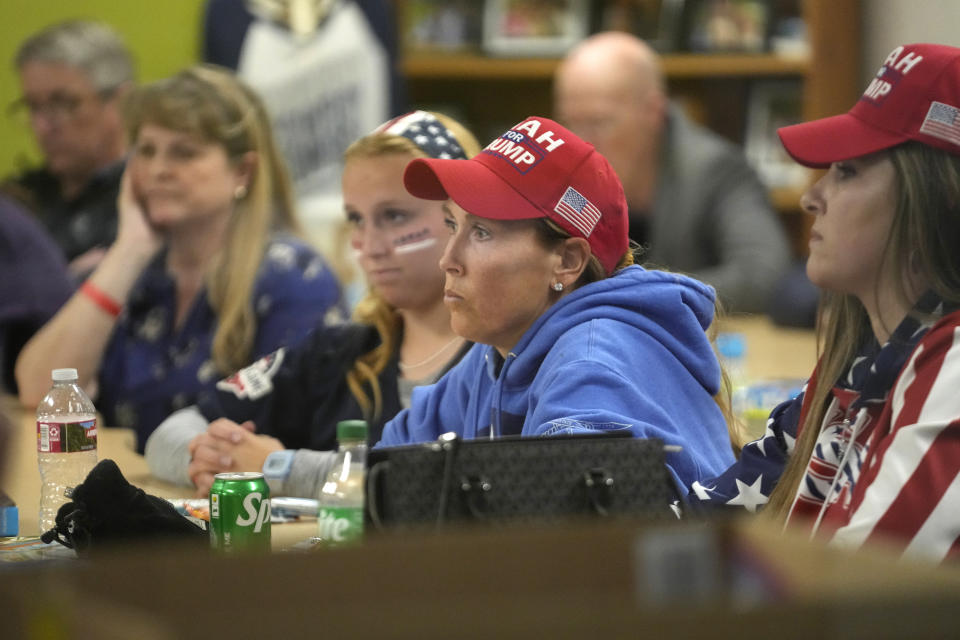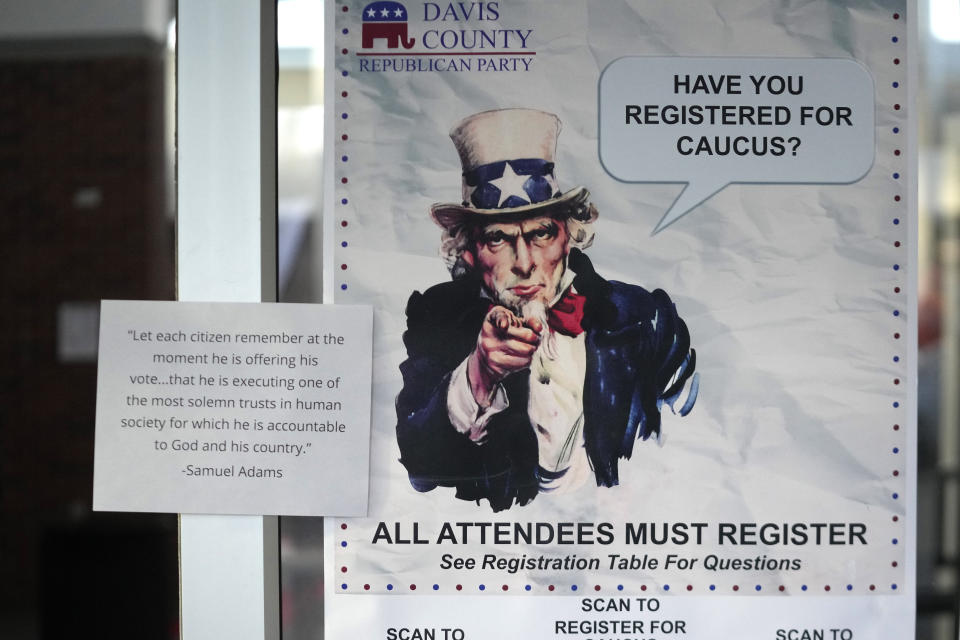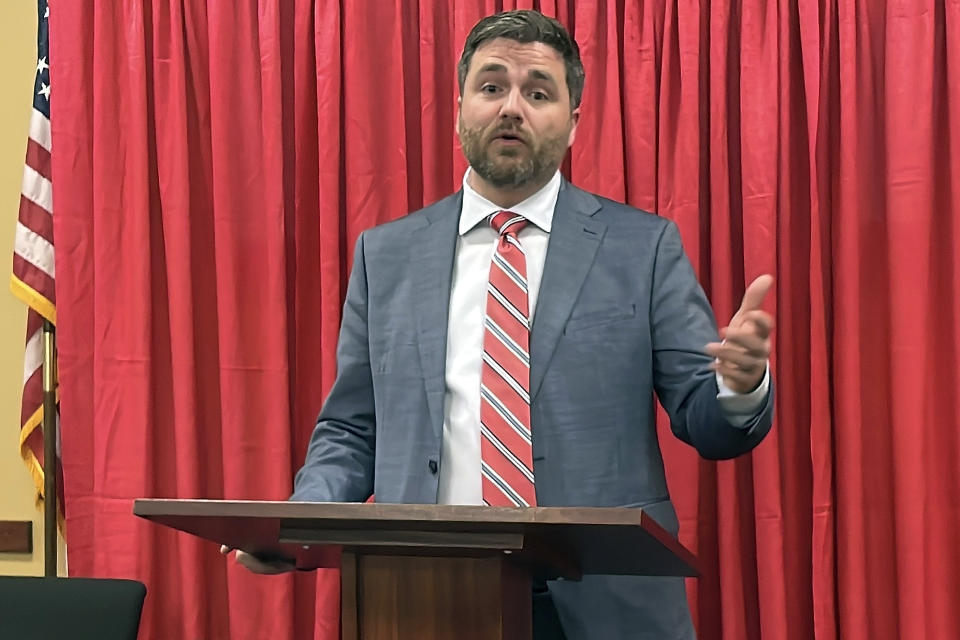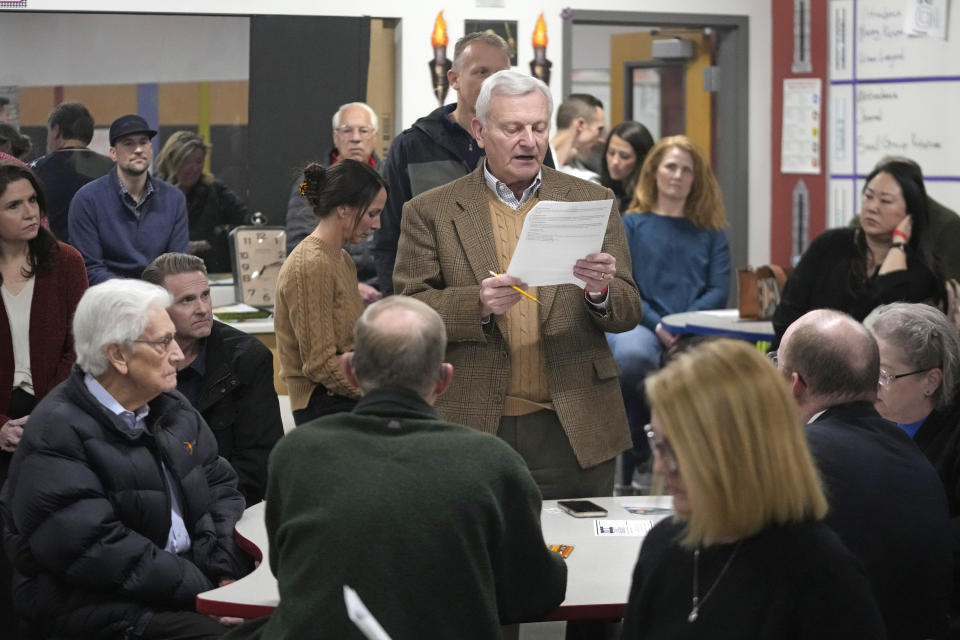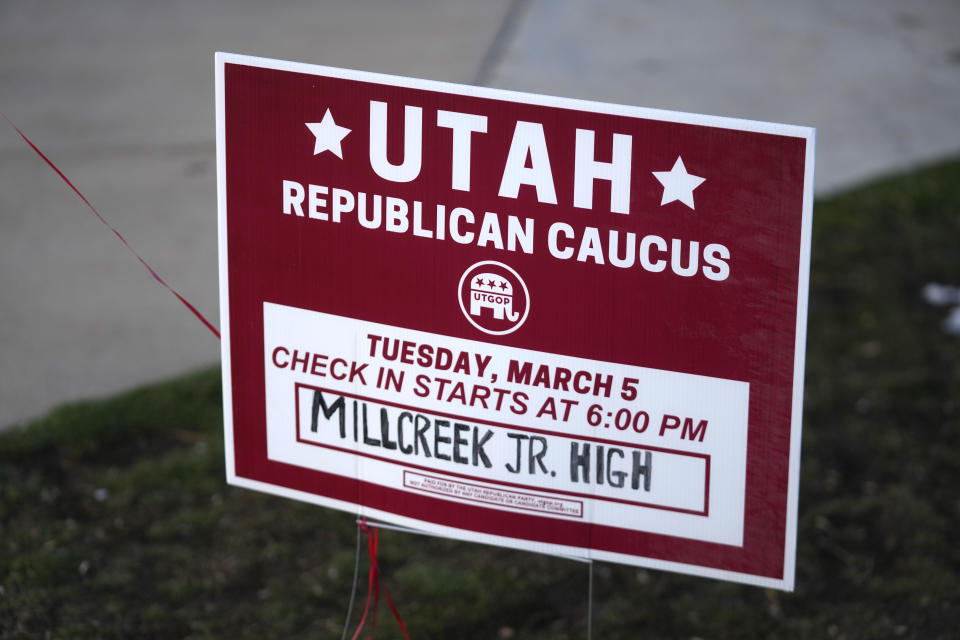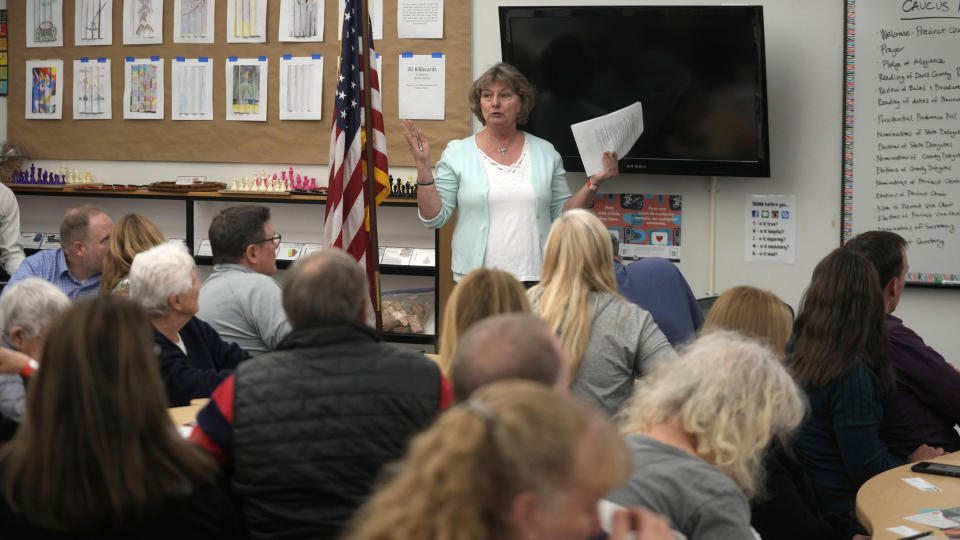Caucus chaos makes Utah last state to report Super Tuesday results
- Oops!Something went wrong.Please try again later.
- Oops!Something went wrong.Please try again later.
SALT LAKE CITY (AP) — For the second time in a decade, a decision by the Utah Republican Party to select its presidential nominee through community caucus meetings instead of a traditional primary left many voters confused and frustrated as the nation waited until just after midnight for the state to unveil its results.
Utah's Republican leaders are facing stiff blowback Wednesday after long lines and technology issues at some of the 2,300 neighborhood caucus locations made Utah the last of the 15 Super Tuesday states to release voting numbers.
The Associated Press ultimately called the state for former President Donald Trump at 1:39 a.m. — more than an hour after Alaska, which is two time zones behind Utah and was the only other state that held caucuses.
Neighbors gathered at schools and community centers to debate the candidates as a group before casting votes in a presidential preference poll that helped distribute Utah's 40 delegates between Trump and GOP rival Nikki Haley, who suspended her campaign Wednesday after being soundly defeated across the country on Super Tuesday.
But the process meant to restore a sense of community in politics descended into chaos at several caucus locations, where voters such as Richard Preiss say they struggled to confirm their registration and were not given an opportunity to debate.
Lines stretched out the door of Evergreen Middle School in Salt Lake City on the frigid March evening as the scanners for reading registration QR codes stopped working and volunteers ultimately let anyone in the door, the University of Utah English professor said.
“Somebody essentially just looked at my phone and saw that I had a QR code and gave me a red wristband, which basically meant that I was cleared to participate,” Preiss said. “The problem is that that QR code could have been for a movie ticket or a Jazz game or something, so there wasn’t a lot of election security.”
Preiss, who called the caucus “a failure,” said he registered as a Republican despite his liberal leanings to have more of a say in his GOP-led state. He and thousands of voters wandered aimlessly around the school in search of the right room. Volunteers seemed ill prepared to offer guidance, he said.
Utah Republican Party Chairman Robert Axson downplayed the problems as “ill-timed curveballs” and told reporters just after midnight that he thought the caucus was “successful," even as the state was only just beginning to release results.
He would not elaborate on the technical glitches that he said caused system delays, and he blamed holdups at certain locations on some volunteers who didn't show up.
Yet Axson defended the party’s decision to use the mostly volunteer-run caucus system for the first time since 2016.
That year, many voters were left waiting in the cold as similar registration issues plagued caucus sites. Meanwhile, an online balloting system rejected many registered voters whose status couldn't be verified, leaving the GOP to field thousands of calls from people who couldn't cast ballots.
Elections went much smoother in 2020 when the state used a conventional voting system. But Axson said the GOP brought back the caucuses this year because they drive political engagement in communities across the Beehive State.
“Ultimately, the engagement that you can get in the precinct level is incredibly valuable. It’s worthwhile,” he said. “So, I think the effort is worth it.”
However, the level of engagement seemed to vary across precincts on Tuesday.
Voters at Millcreek Junior High School in Bountiful engaged in structured debates for more than an hour. But others across the Salt Lake Valley said they were out the door within minutes as some volunteers opted to skip debate and vote immediately. Attendees were mostly elderly or adults without kids.
The caucus system often draws the most politically active members of a community and makes it difficult for anyone who is unable to attend a Tuesday night meeting to have their voice heard, said Utah State University political scientist Damon Cann. As a result, it can sometimes be less representative than a traditional primary.
But primaries cost the state a lot of money, he said. The caucus system passes off the cost and responsibility to the party, creating a system run mostly by volunteers with limited training.
Utah will hold primaries for governor and Congress in June, so opting for a March presidential caucus allowed Republicans to vote earlier in the presidential election cycle without the state having to fund two primaries, Cann explained.
In 2020, poor communication, technological failures and calculation errors at the Iowa caucuses led many voters to question efficacy of the caucus system. With the world waiting to learn who won the nation’s first presidential nominating contest, the Iowa Democratic Party did not release even partial results until 21 hours after residents began gathering in schools and churches to express their preferences.
“Anytime you find that people are having a difficult time interfacing with elections or choosing not to participate or even worse — making an effort to participate and finding out they're unable to — that's problematic, and it's not good for the state,” Cann said. “I think there's much room for improvement on that.”
___
Associated Press writer Amy Beth Hanson in Helena, Montana, contributed to this report.
